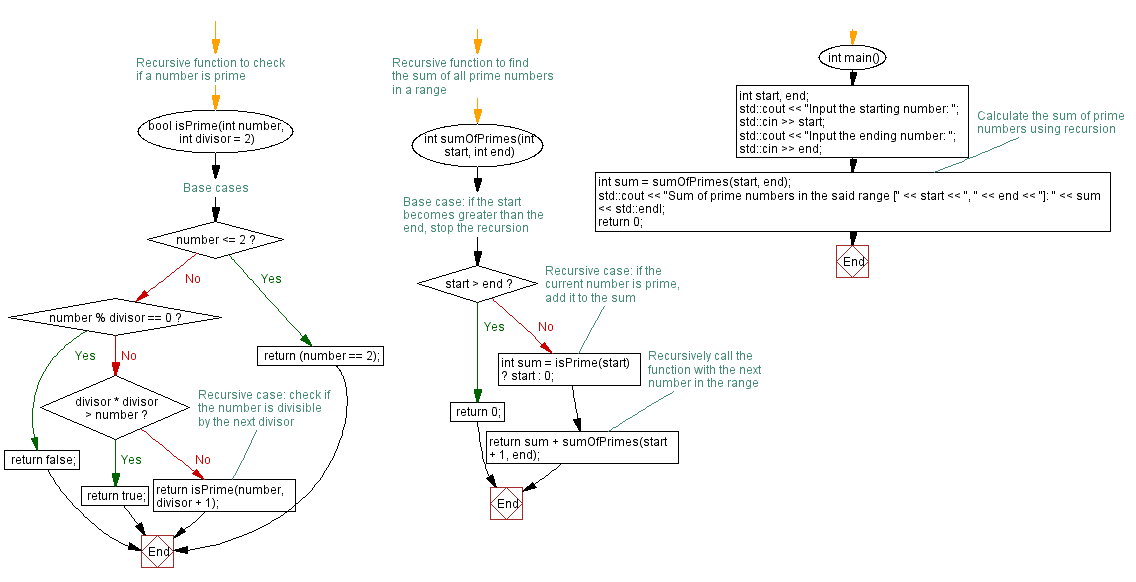C++ Recursion: Sum of prime numbers in a range
16. Sum of All Prime Numbers in a Range Using Recursion
Write a C++ program to implement a recursive function to find the sum of all prime numbers in a given range.
Sample Solution:
C Code:
#include <iostream>
// Recursive function to check if a number is prime
bool isPrime(int number, int divisor = 2)
{
// Base cases
if (number <= 2)
return (number == 2);
if (number % divisor == 0)
return false;
if (divisor * divisor > number)
return true;
// Recursive case: check if the number is divisible by the next divisor
return isPrime(number, divisor + 1);
}
// Recursive function to find the sum of all prime numbers in a range
int sumOfPrimes(int start, int end)
{
// Base case: if the start becomes greater than the end, stop the recursion
if (start > end)
return 0;
// Recursive case: if the current number is prime, add it to the sum
int sum = isPrime(start) ? start : 0;
// Recursively call the function with the next number in the range
return sum + sumOfPrimes(start + 1, end);
}
int main()
{
int start, end;
std::cout << "Input the starting number: ";
std::cin >> start;
std::cout << "Input the ending number: ";
std::cin >> end;
// Calculate the sum of prime numbers using recursion
int sum = sumOfPrimes(start, end);
std::cout << "Sum of prime numbers in the said range [" << start << ", " << end << "]: " << sum << std::endl;
return 0;
}
Sample Output:
Input the starting number: 1 Input the ending number: 7 Sum of prime numbers in the said range [1, 7]: 17
Flowchart:

For more Practice: Solve these Related Problems:
- Write a C++ program to recursively calculate the sum of all prime numbers between two given integers.
- Write a C++ program that implements a recursive function to check for prime numbers and sums them within a specified range.
- Write a C++ program to compute the sum of primes in a range using recursion and a helper function to determine primality.
- Write a C++ program that reads two numbers and uses recursive techniques to sum all prime numbers between them, printing the final sum.
Go to:
PREV : Check if a Binary Tree is a Binary Search Tree Recursively.
NEXT : C++ OOP Exercises Home.
CPP Code Editor:
Contribute your code and comments through Disqus.
What is the difficulty level of this exercise?
